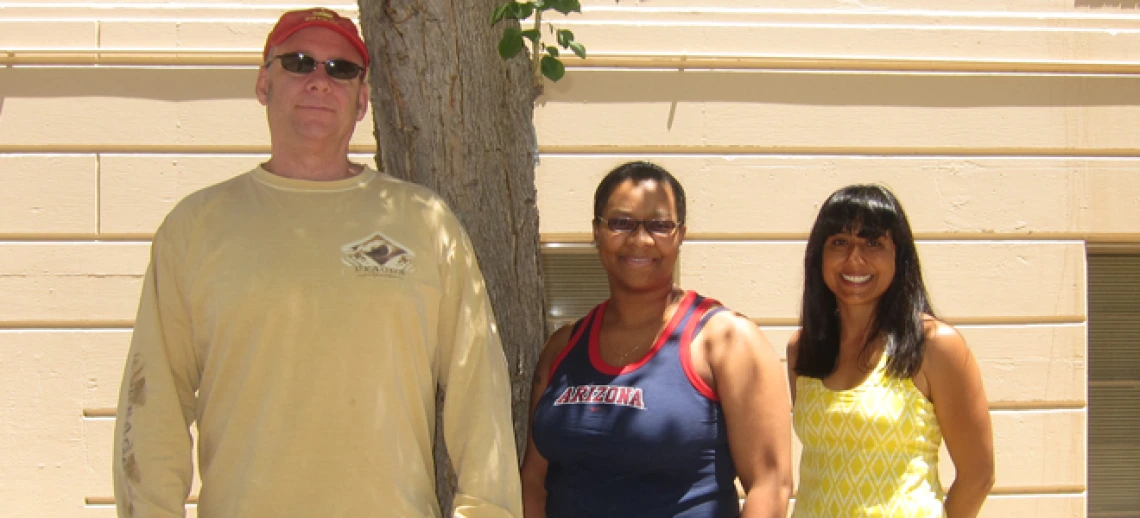Brusseau and Moreno Ramírez Receive Grant to Test Phytoscreening

 Dr. Mark L. Brusseau and Denise Moreno Ramírez have received funding to investigate the effectiveness of phytoscreening as a method to characterize soil and groundwater contamination. The project is funded by the Water Environmental and Energy Solutions (WEES) competitive grants program, which is supported by the Arizona Technology Research Initiative Fund.
Dr. Mark L. Brusseau and Denise Moreno Ramírez have received funding to investigate the effectiveness of phytoscreening as a method to characterize soil and groundwater contamination. The project is funded by the Water Environmental and Energy Solutions (WEES) competitive grants program, which is supported by the Arizona Technology Research Initiative Fund.
 Phytoscreening is the use of plants to characterize polluted sites. It entails the collection of plant tissue samples, followed by analysis for the presence of target compounds, such as chlorinated solvent constituents, the focus of this project. Such sampling may serve as a surrogate or supplement to traditional soil and groundwater sampling.
Phytoscreening is the use of plants to characterize polluted sites. It entails the collection of plant tissue samples, followed by analysis for the presence of target compounds, such as chlorinated solvent constituents, the focus of this project. Such sampling may serve as a surrogate or supplement to traditional soil and groundwater sampling.
 The goal of this project is to examine the efficacy of phytoscreening in arid climates, such as the U.S. southwest. Dr. Brusseau and Ms. Moreno Ramírez will perform their work at Superfund sites in Arizona. Working with them is graduate student Candice Morrison, a UA SRP trainee and member of the Brusseau Contaminant Transport Group . Her dissertation work is focused on the characterization and transport of vapor-phase contaminants in the vadose zone. According to Morrison, “This project will allow us to find out if this new characterization tool can provide a quick and cheap snapshot of contaminated sites.”
The goal of this project is to examine the efficacy of phytoscreening in arid climates, such as the U.S. southwest. Dr. Brusseau and Ms. Moreno Ramírez will perform their work at Superfund sites in Arizona. Working with them is graduate student Candice Morrison, a UA SRP trainee and member of the Brusseau Contaminant Transport Group . Her dissertation work is focused on the characterization and transport of vapor-phase contaminants in the vadose zone. According to Morrison, “This project will allow us to find out if this new characterization tool can provide a quick and cheap snapshot of contaminated sites.”
The UA SRP team is working in collaboration with the Arizona Department of Environmental Quality (ADEQ) and U.S. Environmental Protection Agency (EPA) to obtain background data and identify appropriate sample collection sites. In July, they met with EPA personnel to collect samples near the Motorola 52nd Street Superfund Site in Phoenix, AZ, before attending an EPA-sponsored community meeting.

